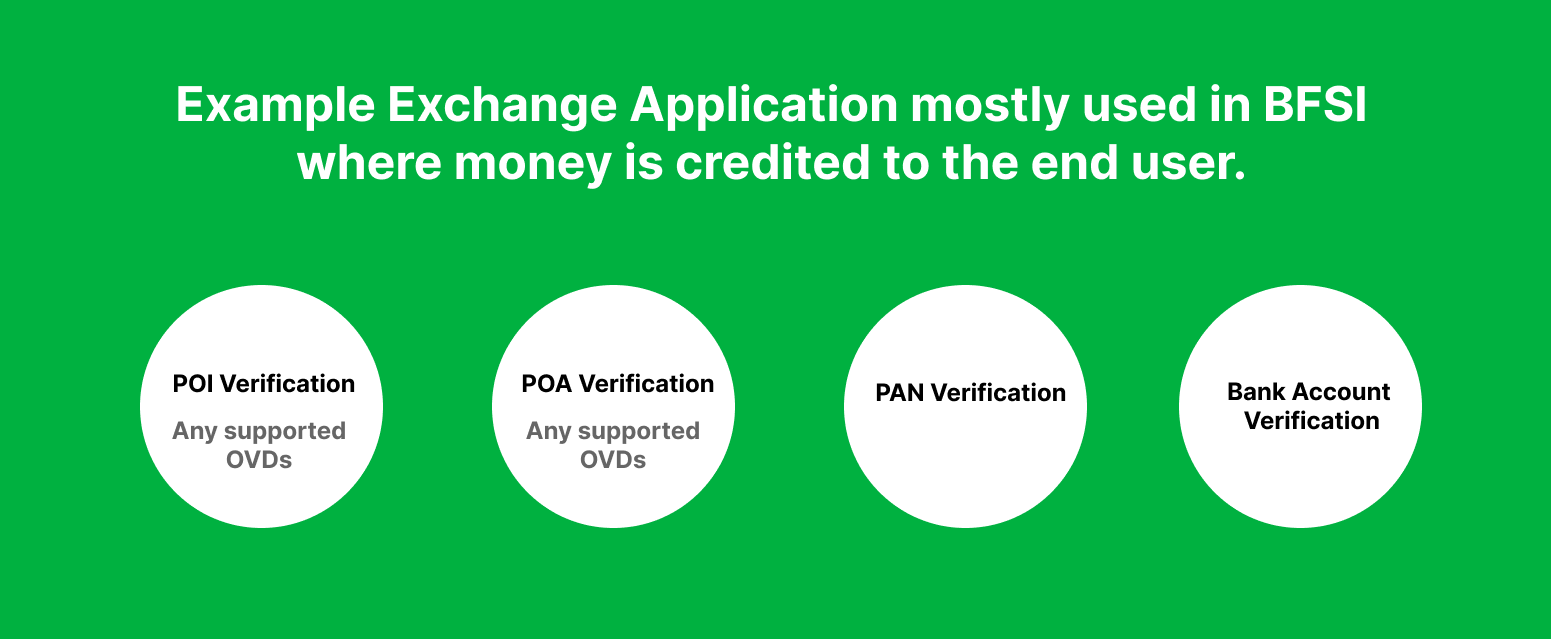Exchange Application
The Exchange Application is a key component of Equal’s ID Exchange Stack, allowing businesses to define and configure their identity verification workflows. It enables the differentiation of use cases, journeys, and the management of collected and verified identities. Acting as a central hub, the Exchange Application facilitates the configuration of verification workflows, document collection, validation rules, and custom business rules, ensuring that documents are collected, validated, and processed correctly according to specific business requirements.
Exchange Application: A Series of Touchpoints in Your Workflow
An Exchange Application is composed of a series of touchpoints in your workflow, each initiating a Verification Journey that serves a specific job to be done. These touchpoints are strategically placed within your user journey to ensure that the necessary IDs/documents are collected, validated, and verified at the appropriate times.

Example:
Let's consider a business workflow where a financial institution Z Bank needs to verify a user’s identity and income proof as part of a loan application process. The Exchange Application can define two touchpoints:
Touchpoint 1: Identity Verification:

- Job to Be Done: Confirm the user’s identity before proceeding to the next step.
- Verification Journey: Verify the user’s PAN card + Check for Employment + Check for Ownership with Data provided by User
Touchpoint 2: Income Verification:

- Verification Journey: Collect and verify income proof documents.
- Job to Be Done: Validate the user’s income to determine loan eligibility.
These touchpoints ensure that the verification process is comprehensive and streamlined, reducing friction for the user and increasing the accuracy of the verification.
When to start an Exchange Transaction
Businesses should ideally create an Exchange Transaction at a key point in the user journey before the start of any verification. This could be during user onboarding after the user's basic details are captured in the loan application when employment verification is triggered for the user, or before any verification journey is started in the user's journey
Example
In a loan application process, you might create an Exchange Transaction when the user's basic details are captured at the start of their application. Once successfully, the exchange transaction is started. The verification of the user's PAN card and income documents can be invoked based on the user's journey.
How to create an Exchange Application
Currently creating exchange application is only supported with the help of your account manager. Reach out to them for creating your exchange application.
How to start an Exchange Transaction
When starting an Exchange Transaction, certain IDs are mandatory to ensure the transaction is created successfully. These IDs help in uniquely identifying the exchange application and the user whose verification is being performed.
Name | ID | Mandatory or Optional | Description |
|---|---|---|---|
Exchange Application ID | exchange_application_id | Mandatory | This ID holds all the necessary configurations for the complete workflow. It is crucial as it defines the specifics of what needs to be verified and how. |
Idempotency / Reference / Application ID | reference_id | Optional | This is a unique identifier to ensure the transaction is processed only once. It helps in avoiding duplicate transactions. |
Business User ID | business_user_id | Optional | The identifier for the user in the business’s system. It is used to map the verification results back to the business’s user database. |
Updated about 1 year ago
